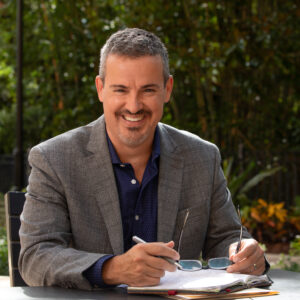I taught last night, I say.
You’re the busiest retired person I know, you say.
I taught a quiet poem, Denise Levertov’s “Settling.” Having relocated to Seattle, Levertov turns to her new setting to “settle” into the place.
I was welcomed here—clear gold of late summer, of opening autumn, the dawn eagle sunning himself on the highest tree, the mountain revealing herself unclouded, her snow tinted apricot as she looked west, tolerant, in her steadfastness, of the restless sun forever rising and setting.
Phrase by phrase, line by line, the poem deepens. It moves from seasons, minimally described, to eagle, described in slightly more detail, to mountain, its image and its meaning, lingered on, the poem’s object of concentration.
You are the mountain, I could have said. You have always been the mountain, steadfast and tolerant of me, a “restless” son, “forever rising and setting.” But I didn’t say it. I taught last night. That’s all, that was all I said.
Most afternoons when I call, your make-up is on, your lips, sometimes a little smeared, a lively cherry red. When we FaceTime I never think about how nouns become verbs, how mother mothered me. How for too many years, afraid of being smothered, I protected myself from you. When I was a boy, you didn’t want me to play little league baseball: too dangerous. When I was an adolescent, you didn’t want me to kiss a girl. I played, badly, baseball. I kissed, awkwardly, deliriously, a girl. And another, and another, girl after girl, woman after woman. Your restless son—until, in my late thirties, I met the woman.
When, after being rejected by four MFA programs in creative writing in my final semester of college, I told you I was going to Israel for a year, you, the first woman president of Temple Emanuel, were delighted. But you didn’t show me just how delighted you were. You feared, you confessed to me later, that if I saw how excited and maybe even relieved you were that your oldest son, who dropped out of Hebrew school the morning after he became a bar mitzvah, was choosing to fly toward Judaism—or at least toward Jewishness—I’d change my mind. Your wisdom: knowing what not to say. When one year in Israel became two, when two was stretching into three, you asked, when are you coming home? In Israel, I discovered that distance is my home.
I did return to Cherry Hill. Indeed, I returned to my bedroom. In the afternoons, during those first few weeks, from my room I heard you in the next room on the phone with a friend. You were weeping. Were you unhappy with your marriage? I didn’t want to know. I returned to a job at a restaurant where I had worked before leaving for Israel. I found an apartment. I moved out. I never told you what I heard, what I thought I heard through the bedroom wall.
What’s said, what’s unsaid. What’s seen, what’s unseen. Both present. All the time. Like Mt. Rainer, south/southeast from Seattle. The day after my class, I could have read Levertov’s poem to you. It continues,
Now I am given a taste of the grey foretold by all and sundry, a grey both heavy and chill. I’ve boasted I would not care, I’m London born. And I won’t. I’ll dig in, into my days, having come here to live, not to visit. Grey is the price of neighboring with eagles, of knowing a mountain’s vast presence, seen or unseen.
When my biological father, your first husband, a Christian Scientist just returned from the Korean War, refused to get me medical attention when I was born with a “heart problem,” you dug in. You dug into your life and mine, into our days. I was here to live, not visit. You divorced him. I wasn’t yet a year old. One day, in a supermarket aisle, me in your arms, you stood and wept. Just wept. Then we left L.A., where I was born, and moved in with your parents in Northeast Philly. Distance entered my life early.
I would like to come home to you now, mother. These days, you keep your apartment dark. I don’t feel at home in the dark. Still, I visit when I can. I accompany you as you hold onto your walker, taking one difficult step after another, inching your way, labored breath by breath, toward the dining room, a meal you refuse to eat. My life, as it always has been, is elsewhere. So, every day we FaceTime. We don’t have much to say to each other now. But with many words or few, distant or near, we still, as long as you are in this world, know each other’s presence.
I taught last night, I say. And that, dear mother, I hope will suffice.
Richard Chess has published four books of poetry, the most recent of which is Love Nailed to the Doorpost. Professor emeritus from UNC Asheville, where he directed the Center for Jewish Studies for 30 years, Chess serves on the boards of Yetzirah: A Hearth for Jewish Poetry and Black Mountain College Museum + Arts Center, where he co-directs its Faith in Arts project. You can find him at www.richardchess.com .





